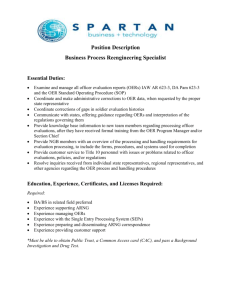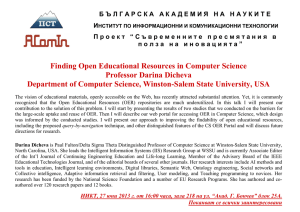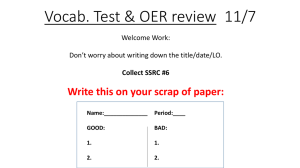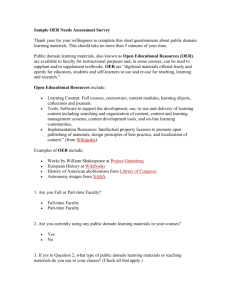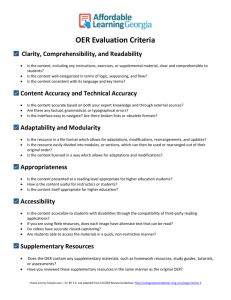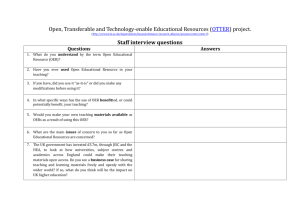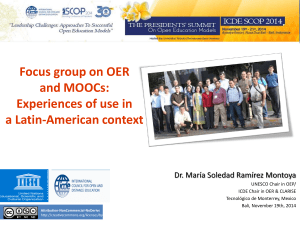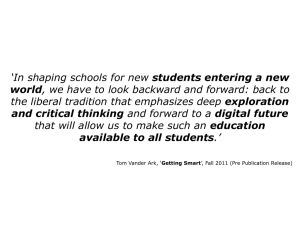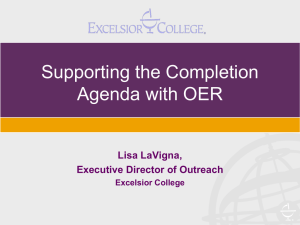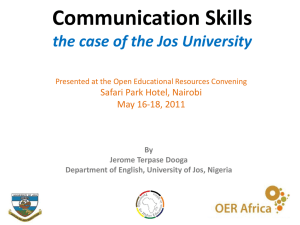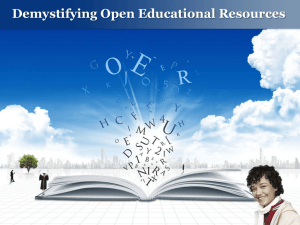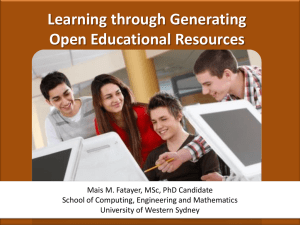Teacher Education through School Based Support in India
advertisement
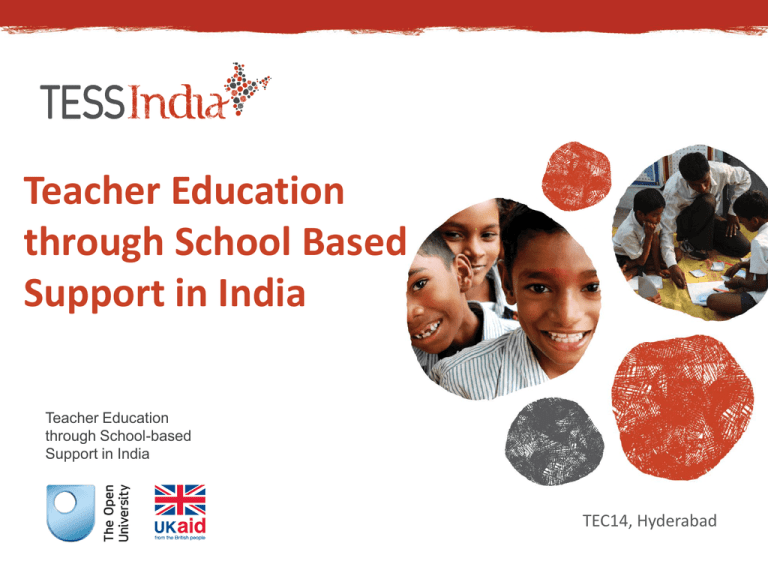
Teacher Education through School Based Support in India Teacher Education through School-based Support in India TEC14, Hyderabad Collaborative approach to teacher development • Centrality of valuing the voices of Indian teachers and an appreciation of their educational context • A suggestive approach that inspires rather than being prescriptive and exhaustive. • Provides the ‘seeds for adaptation and adoption. • Promotes reflection and sharing of practices /experiences. The OER Materials • Takes the form of a resource or tool kit • Supports and speaks directly to the teacher • Builds mutual respect between teachers and students • Promotes active engagement of students • Focuses on transferable classroom techniques • Includes many practical activities and dialogue • Stands alone and also complements other forms of training • Assessment an integral part of teaching-learning Process of Material Development • Gathering a bi-national writing team • Scoping what is required (policy[ NCF 2005 & NCFTE 2009], research, experiences of teachers & teacher educators) • Outlining a syllabus for each subject set( classroom techniques) • Writing each unit as a team, peer reviewing and reworking • Circulating the first draft to critical readers in India and UK • Using the feedback to inform writing of the second draft • Preparing the audio visual content- Indian classrooms • Development testing of the materials in Indian classrooms • Publiction of the English Units • Making them available in multiple formats: in print, online, on CDs, on SD cards for mobile phones The OER Units are: • OERs are : LIVE Free Open , represent shells written initially in English to be translated and localised. • Criticality of OER localisation to fit different teaching and learning contexts- to reflect local cultures, customs school traditions.Capacity building of those involved integral to the process. • Evolving (Assume adaptation and amendment) Localisation of OERs • Identification and Constitution of State Resource groups/teams ( subject specific) in collaboration with SCERT, SSA & RMSA other key institutions. • Conduct of a Series of Subject specific Workshops for refining and localizing OER units by the SRGs (SLEs, SLMs, Experts) • Integrating videos, case studies, reference to NCERT textbooks, photographs etc into the Units. • Vetting and approval by SLMs and Review Committee Example content from Elementary English (1) EE 02: English emergent literacy: songs, rhymes and word play: Activity 5 EE 15: Everyday English: using the community as a source: Activity 1 Example content from Elementary English (2) EE 15: Everyday English: using the community as a source: Activity 5 EE 6: Reading English: shared reading and guided reading: Resource 2 Example content from Secondary English (1) SE 02: English in the Classroom: Case study 1 Example content from Secondary English (2)-SE 6: Helping students write independently: Resource 1 SE 12: Teaching literature: Activity 5 Tools and vehicles • The units represent both tools that can be employed according to their users’ differing needs and contexts, and vehicles for creating supplementary units to extend what is currently available. • As such, they place their end-users at the centre of their creation, enhancement and deployment, in a collaborative, needs-driven, iterative process. NOT AN END IN THEMSELVES Material Usage by States : Possibilities • Pre- Service Teacher Education ( Modules/ Supplement/Practicum) • In- service Teacher Education Programs (SCERT/DIET etc) • On line Courses Open Universities/ ODL Contact • Trainings of HTs/ Principals / State administrative cadre DEOs/BEOs and others • Incorporation into training modules • Conducting discussion & dialogue in BRC/ CRC meetings on classroom pedagogic practices • Promote academic support in classrooms. To find out more, see our website: • www.TESS-India.edu.in
